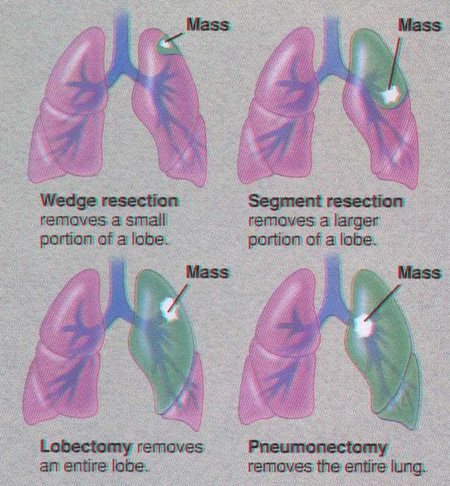Thoracic
Lung Cancer
What causes lung cancer?
Smoking, asbestos, radon, environmental hazards, diet, gender, other diseases, family history and air pollution have all been shown to increase the risk of lung cancer.
How is lung cancer treated?
Surgery is most often used in combination with chemotherapy and/or radiation therapy. Surgical procedures are selected based on the size, type and location of the tumor. A surgeon, medical oncologist and radiation oncologist determine the treatment plan that is right for each individual.

Thoracic Surgery
Doctors specializing in thoracic surgery often use small scopes to visualize areas inside the chest and perform procedures for diagnostic and treatment purposes. Such procedures include bronchoscopy (scope of the bronchus), esophagoscopy (scope of the esophagus), mediastinoscopy (scope of the area behind the sternum) and thoracoscopy (scope of the thorax). In addition, the Exeter Hospital radiology department specializes in CT scan guided biopsies in order to confirm diagnoses.
Thoracic surgery is most often used in the diagnosis and treatment of lung cancer, esophageal cancer and some lymphomas.
Meet our affiliated thoracic surgeons:
Roderick McKee, MD
Douglas Mathisen, MD
Jay Swett, MD
Amit Joglekar, MD
Our pulmonologists are skilled in evaluating all lung diseases and sleep disorders. In addition, they perform diagnostic bronchoscopies and pre-operative evaluations prior to thoracic surgery.
Meet our affiliated pulmonologists:
John Brennan, MD
Paul Deranian, MD
Richard Hollister, MD
Additional resources:
Lung Cancer
Leukemia/Lymphoma Society